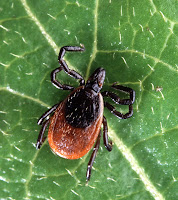A
recent study of men and women undergoing IVF found that even low
levels of some pervasive environmental chemicals are associated with
reduced number of pregnancies. In the small sample of IVF patients,
researchers adjusted
for confounding factors like age, race, and smoking, and found that
small increases in blood levels of both mercury and cadmium are
associated with reduced
rates of clinical and biochemical pregnancies.
[The term
“biochemical pregnancy” refers to two positive hCG tests in very
early pregnancy, while the term “clinical pregnancy” refers to
detection of a gestational sac on ultrasound.]
In the women, slight increases in blood mercury were associated with pregnancy decreases of up to 35 percent, whereas slight increases in blood cadmium were associated with decreases of up to 94 percent. There were no similar effects detected in the men.
So what does this mean for you, if you're trying to get pregnant? Chemicals are all around us, in products, furnishings, and even foods, and you cannot completely avoid every one of them. But there are a few steps that can be taken to lessen your risk of exposure:
In the women, slight increases in blood mercury were associated with pregnancy decreases of up to 35 percent, whereas slight increases in blood cadmium were associated with decreases of up to 94 percent. There were no similar effects detected in the men.
So what does this mean for you, if you're trying to get pregnant? Chemicals are all around us, in products, furnishings, and even foods, and you cannot completely avoid every one of them. But there are a few steps that can be taken to lessen your risk of exposure:
- Don't smoke cigarettes or be around second-hand smoke.
- Avoid certain types of fish that contain high levels of mercury: bluefin and albacore tuna, swordfish, shark, king mackerel.
- Don't use phosphate-laden fertilizers.
- Eat only moderate amounts of organ meats, like liver and kidneys.
- Have your blood tested for toxins. You might also consider testing your soil and, if you have a well, your water supply.
For more details on the study and on the effects of mercury and cadmium, see this Fertility Authority article.






